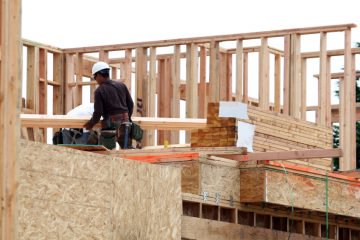SpareRoom Founder Selects His Housemates After Documenting Search
Two months ago, the founder of SpareRoom.co.uk began documenting his journey to find two new housemates for his six-bedroom home. Now, Rupert Hunt has made his choice.
After posting an initial video advertisement, Hunt received a whopping 7,251 applications from a variety of hopeful housemates aged between 17-68. Three even came to the house.
You can see a selection of the video applications here: /over-7000-tenants-apply-to-live-with-spareroom-founder/
The process has highlighted the interesting use of videos as a search tool, the struggles of generation rent and how an online-only business is exploring the very human fundamentals of finding a housemate.
It also emphasises the shortage of housing in London, where Rupert’s home is located.
“There are so many empty rooms in properties across the UK, as well as people overstretching themselves to afford a one-bed place, so I think it’s so important to spread this message that living with the right people beats living on your own,” Rupert explains.

SpareRoom Founder Selects His Housemates After Documenting Search
The entrepreneur advertised the rooms on a pay what you can afford basis. His new housemates now pay £500 per month each, well below the average room rents for the area of east London.
Rupert held a house party for applicants and attended a speed-flatmating event, which was all documented on SpareRoom’s YouTube channel.
So who has he chosen?
First up is Colin Ho, a 27-year-old musician from Sydney, Australia. The second housemate is editor Ivanka van der Merwe, also 27-years-old, from South Africa.
Ivanka says: “I’ve been in London for almost six years. I’ve lived in five different rooms and never once managed to unpack all of my bags. I guess I just kept waiting for things to go wrong, to have to move again. I never feel quite comfortable enough to put down roots anywhere or call anything home.
“I went back to my old flat to collect the remainder of my things, and it was sad and strange to accept that a chapter of my life was over, but the overriding thought that persisted through all that was, ‘I just want to get this done so I can go home’.
“Home. Where Colin was waiting for me with a glass of wine and a hug. And the first thing I did was carry it all into my room and unpack as much as I could.”1
Rupert explains the process: “It was an unbelievably tough decision – I could have easily lived with most of the people I met. In some ways, what stood out about the two I chose was what didn’t stand out. Colin and Ivanka both submitted videos of themselves chatting about nothing in particular, but I got a really good vibe and a strong sense that we’d get on well, which turned out to be true.
“Colin’s a laid back, optimistic kind of guy, passionate about his music and excited by the possibilities that life in London has to offer.
“It was clear from her video that Ivanka has a sharp sense of humour and she regularly has us in hysterics. We also seemed to have quite a few things in common, such as taste in music and food. She’s also got a nice bunch of friends I’ve enjoyed getting to know. She loves cooking and has made a few great dinners for all of us.”
He explains living with the pair: “Cooking and eating together has been one of the other highlights so far, which I haven’t experienced to the same extent with previous housemates.
“After another short stint between housemates, rattling around the house on my own, it’s been a good reminder that living with the right people beats living on your own.”1
Would you follow in Rupert’s footsteps in finding housemates? If you are a homeowner, you will be pleased to know that from 6th April, you can earn more from taking in a lodger than you can at present. The tax-free allowance increases to £7,500 per year on this date.
See Rupert’s final video in the series: https://www.youtube.com/watch?v=wJSi5-NeRsc
1 http://www.propertyindustryeye.com/worth-watching-spareroom-founder-finally-finds-flatmates/








